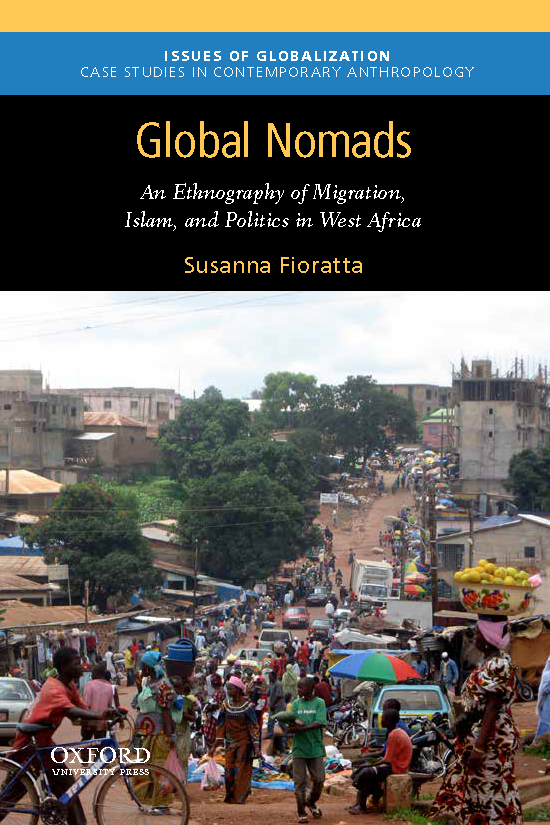
Countering simplistic and often xenophobic narratives of migration as “crisis,” Global Nomads: An Ethnography of Migration, Islam, and Politics in West Africa, tells the story of a group of people for whom migration is not a symptom of a disordered world, but rather an ordinary practice full of social and personal meaning.
For ethnic Fulɓe people in Guinea, migration is a historically and culturally appropriate way to become a proper, respected adult person in society. It is also a way to withstand economic and political insecurity in one of the poorest countries in the world, a country that observers have often considered at risk of descending into civil war. Against this backdrop of national insecurity, Fulɓe have actively engaged with the world in ways that have sometimes yielded materially successful results, as when migrants return home to build houses and support their families.
But though people in the Fouta Djallon talk about migration as ordinary and expected, the reality is complicated and sometimes contradictory. Some migrants fail to earn any money. Others adopt reformist (or “Wahhabi”) Islamic practices during their time abroad, leading to disputes within their Sufi Muslim families. And in 2010, during Guinea’s first democratic presidential elections since independence from France in 1958, Fulɓe unified so fervently around a single presidential candidate that many looked forward to his (unrealized) victory as a time when all Fulɓe everywhere would return home to the Fouta Djallon, and Fulɓe migration would effectively cease.
Teasing out these contradictions, Global Nomads shows that political and economic motivations to migrate are important in Guinea, as elsewhere, but they are only part of the story. Family and community expectations, cultural ideals of work, notions of gender, and religious piety all come into play when people dream of going abroad and when they contemplate coming home again.
For the classroom:
Global Nomads is written accessibly for a wide audience, including undergraduates, non-specialists, and anyone interested in Guinea, as well as established scholars. It is appropriate for introductory anthropology courses as well as courses on migration, West Africa, and ethnographic research methods. A companion website with discussion questions and other learning resources to accompany the book is available at www.oup.com/he/fioratta.
Further reading: Author Q&A
Listen: Interview, The New Books Network podcast